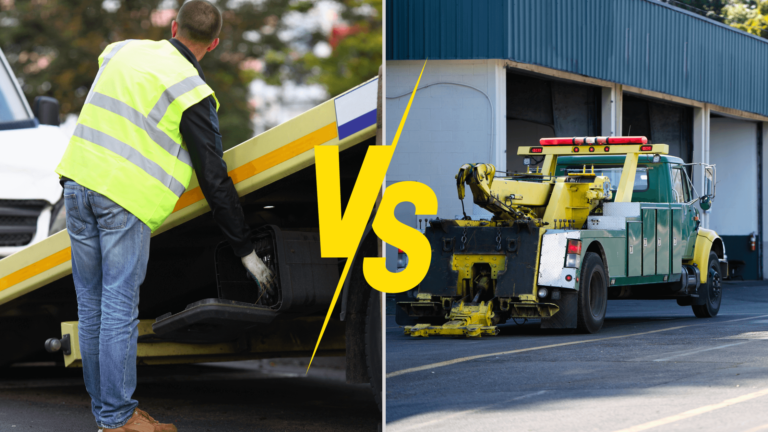Introduction
Carrying out a road trip during your travels can be an exhilarating experience, allowing you to explore hidden gems and scenic routes. However, it is crucial to prioritize safety, as unforeseen circumstances can occur, leaving you stranded in unfamiliar territories. Car recovery in tourism plays a pivotal role in ensuring your journey remains smooth and trouble-free. This comprehensive guide provides valuable insights, tips, and precautions to stay safe during your travels, giving you the confidence to embark on unforgettable road trips.
Car Recovery in Tourism: The Basics
Understanding the fundamentals of car recovery is essential before you set off on your adventure. From understanding the risks associated with long drives to preparing for emergencies, this section covers the core elements of car recovery in tourism.
1. Assessing the Risks Before You Set Off
Before embarking on your road trip, take the time to thoroughly assess the risks associated with long drives. Research the routes you’ll be taking, the prevailing weather conditions, and potential challenges specific to your destination. Being aware of any road closures, construction areas, or hazardous terrains is vital for planning your journey effectively. Moreover, it’s essential to familiarize yourself with the local driving laws and regulations, as they might differ from what you are accustomed to in your home country. Knowing these details in advance will help you make informed decisions and stay safe during your travels.
2. Planning for Emergencies
Being prepared for any eventuality is the cornerstone of a safe and enjoyable journey. Create a well-thought-out emergency plan that includes contact information for local emergency services, your embassy, and reliable car recovery services in the region you’ll be traveling through. Save these contacts in your mobile phone and have them written down as a backup. In your emergency kit, pack essentials such as a first-aid kit, basic tools for minor repairs, and spare tires. Additionally, carry items like a flashlight with extra batteries, non-perishable food, water, and blankets to help you cope with unexpected delays or emergencies effectively.
3. Regular Vehicle Maintenance
One of the most crucial aspects of car recovery in tourism is ensuring your vehicle is in excellent condition before setting off on your journey. Schedule a comprehensive inspection with a certified mechanic, covering all essential systems such as brakes, tires, engine, and electrical components. Address any necessary repairs or maintenance tasks to minimize the risk of breakdowns and accidents during your travels. Regular vehicle maintenance not only enhances your safety but also contributes to better fuel efficiency, making your road trip more economical and environmentally friendly.
Choosing the Right Vehicle for Your Journey
Selecting the appropriate vehicle for your road trip is crucial, as it can significantly impact your safety and comfort during the travels. Here’s what you need to consider when choosing a vehicle for your journey.
1. Analyzing the Terrain and Destination
Evaluate the terrains and conditions of the places you plan to visit during your road trip. If your journey involves driving on rough terrains, mountainous regions, or off-road trails, opting for a sturdy and rugged vehicle with four-wheel drive capabilities would be ideal. On the other hand, if your route consists mainly of smooth highways and city driving, a reliable and fuel-efficient car would be more suitable.
2. Ensuring Sufficient Space and Comfort
Given that you’ll be spending extended hours on the road, it’s crucial to prioritize comfort and space within the vehicle. Ensure that the chosen car can comfortably accommodate all passengers and luggage without feeling cramped. Comfortable seating and ample legroom can make a significant difference in making long journeys more enjoyable.
3. Fuel Efficiency and Environmental Impact
Incorporating sustainability into your travel plans can make a positive impact on the environment. Opt for a vehicle with good fuel efficiency, reducing both your fuel costs and carbon footprint. By choosing an eco-friendly car, you contribute to responsible and eco-conscious tourism, preserving the natural beauty of the destinations you visit.
Essential Packing Tips for a Safe Journey
Proper packing is a vital aspect of car recovery in tourism, as it can influence your convenience and safety on the road. Here are some essential packing tips to consider before setting off on your adventure.
1. Organizing Your Luggage
Properly organizing your luggage within the vehicle is crucial for maintaining stability and control while driving. Distribute the weight of your belongings evenly, placing heavier items closer to the vehicle’s center of gravity. Avoid overloading the car, as it can lead to increased fuel consumption, affect handling, and potentially lead to accidents.
2. Including Emergency Essentials
Your emergency kit should contain items that can be lifesavers in critical situations. Pack a reliable flashlight with extra batteries, non-perishable food, water, blankets, and a comprehensive first-aid kit. These supplies will prove invaluable in case of unexpected delays, breakdowns, or emergencies during your road trip.
3. Carrying Navigation and Communication Devices
Having reliable navigation tools is essential for finding your way through unfamiliar places. Consider carrying a GPS system or physical maps to supplement your navigation. Additionally, ensure that you have a fully charged mobile phone and a power bank, enabling you to stay connected and reach out for help in case of emergencies.
Safe Driving Practices for Your Road Trip
Practicing safe driving habits is paramount to your well-being during your travels. Follow these guidelines to reduce the risk of accidents and ensure a smooth journey.
1. Avoiding Fatigue
Long journeys can be physically and mentally tiring, leading to reduced alertness and concentration. To combat fatigue, take regular breaks and switch drivers if possible. Staying well-rested and refreshed throughout the journey is vital for maintaining focus on the road. Additionally, ensure you get sufficient sleep before embarking on your trip and avoid driving during your usual sleeping hours. Planning a rest stop before becoming too tired can make a significant difference in your alertness level.
2. Obeying Traffic Rules and Speed Limits
Respect and adhere to the local traffic rules and speed limits of the regions you’ll be visiting. Being aware of specific driving customs or practices in different areas will help you avoid fines and potential accidents. Keep in mind that safe driving not only protects you but also contributes to a safer road environment for everyone.
3. Adapting to Weather Conditions
Weather conditions can change rapidly during a road trip, so staying informed about weather forecasts is essential. Adapt your driving style accordingly and exercise caution in adverse weather conditions, such as rain, fog, or snow. Reducing your speed and maintaining a safe following distance can prevent accidents and ensure your safety during challenging weather situations.
Dealing with Breakdowns and Emergencies
Despite all precautions, breakdowns or emergencies may still occur during your travels. Knowing how to handle these situations calmly and effectively is crucial.
1. Finding Safe Parking
If your car breaks down or encounters a problem, prioritize finding a safe place to park. Pull off the road and away from traffic if possible, to prevent further accidents or hazards. Turn on your hazard lights to signal other drivers that your vehicle is not functioning correctly. It’s important to avoid stopping in hazardous areas or on congested roads, as this can increase the risk of accidents or other unpleasant events. Also, ensure that your vehicle doesn’t obstruct visibility or the access of other vehicles.
2. Contacting Roadside Assistance
Keep the contact information of reliable roadside assistance services in the area accessible. In the event of a breakdown or emergency, call for help and provide your precise location to expedite the assistance process. Being prepared with the necessary details will save time and ensure help arrives promptly, with the support of AutoRescueZone.
3. Handling Vehicle Problems
While waiting for roadside assistance, avoid attempting complex repairs unless you have the expertise to do so. Attempting DIY repairs without proper knowledge and tools may worsen the problem or put you at risk. Instead, wait for the professionals to arrive and handle the situation effectively.
FAQs
If your car breaks down in a remote area, first find a safe place to park off the road. Turn on your hazard lights and contact roadside assistance for help.
Yes, carrying spare tires is essential for any road trip. They can be lifesavers if you encounter a flat tire in a remote location.
While GPS can be helpful, it’s essential to carry physical maps as a backup, especially in areas with limited or no signal.
To stay safe while driving at night, ensure your headlights and taillights are in proper working condition. Reduce speed and stay alert for any potential hazards.
Carry your driver’s license, vehicle registration, and proof of insurance at all times during your journey.
If you encounter an accident, assess the situation and check for injuries. Contact emergency services immediately and provide assistance if possible.
Conclusion
Car recovery in tourism is a crucial aspect of any road trip adventure. By adhering to safe driving practices, thorough preparation, and proper planning, you can ensure a smooth and enjoyable journey during your travels. Always prioritize safety and stay well-informed about the destinations you’ll be visiting, with the support of AutoRescueZone or other reliable car recovery services, because every journey is safer and more pleasant with the right partners on board.
Experience Professional Assistance from AutoRescueZone in Car Recovery Situations
The AutoRescueZone team is here to ensure your safe and worry-free journey! No matter your road adventure, we are here to offer comprehensive car recovery services to help you overcome any obstacle. We understand that travels can bring unexpected challenges, and that’s why we are dedicated to being your trusted travel partner.
With an experienced team and specialized equipment, we are prepared to assist in any situation, from a simple flat tire to more complex technical issues. Whether you’re in the midst of an urban area or on a less-traveled road, we’re here to provide the assistance you need.
Additionally, we offer practical tips for car recovery in tourism, so you can always be prepared for any situation. Our team aims to provide not just a recovery service but also a trusted companion on your journeys. Contact us today to learn how we can make your travels safer and more enjoyable. With AutoRescueZone, your road trips become a true pleasure!



